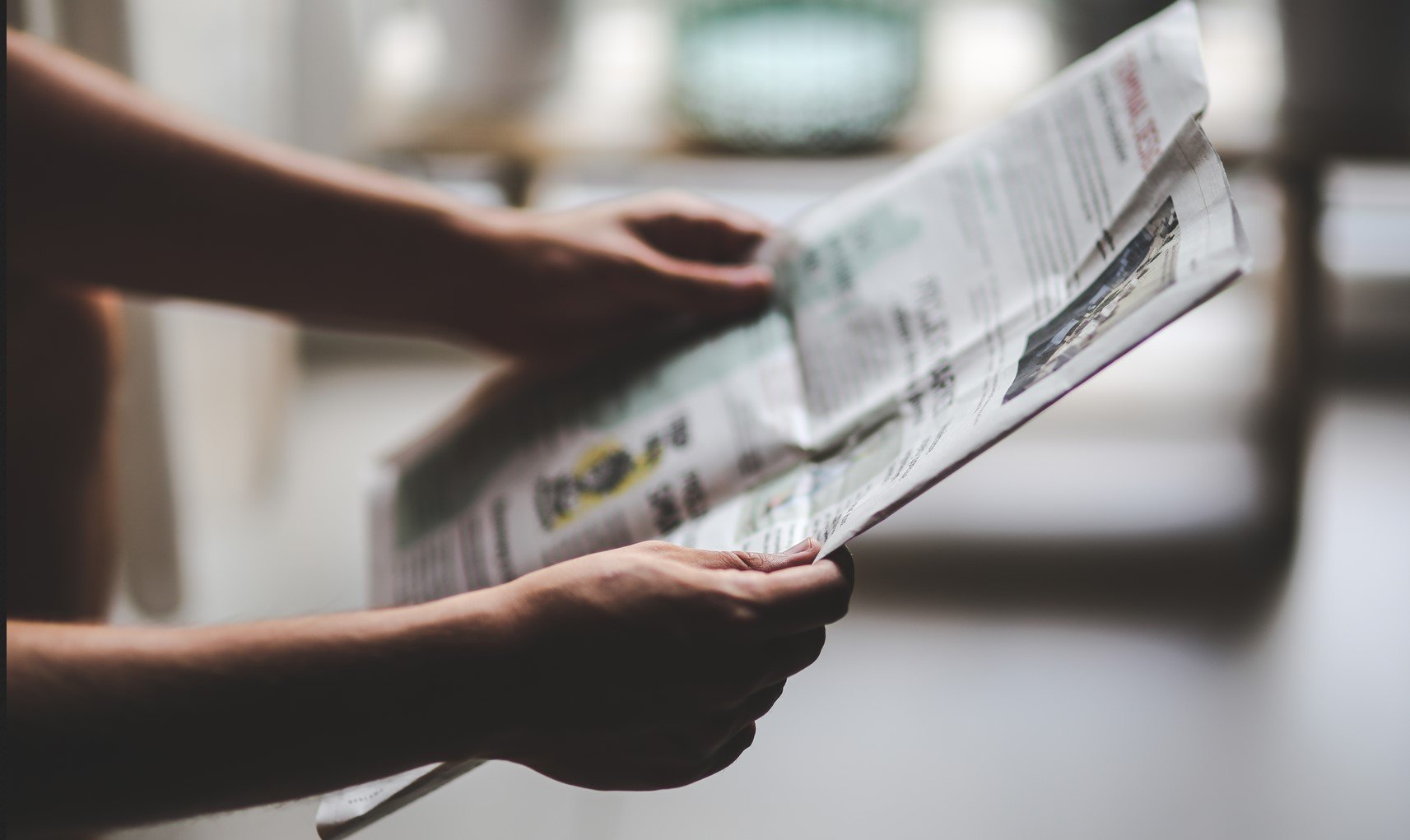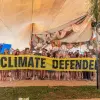
UN Rights Review: Vietnam Scrutinized at 144th Session
Introduction
This submission provides an overview of Human Rights Watch’s main concerns with respect to the human rights situation in Vietnam. We hope it will inform the UN Human Rights Committee’s preparation for its upcoming review of the Vietnam’s compliance with its obligations under the International Covenant on Civil and Political Rights (ICCPR).
Vietnam has been a party to the ICCPR since 1982. However, the government’s laws, policies, and practices systematically violate its obligations under the covenant and the rights of the Vietnamese people.
The Communist Party of Vietnam maintains its monopoly on political power and allows no challenge to its leadership. The authorities severely restrict all civil and political rights, including the rights to freedom of expression, peaceful assembly, association, and religion. They prohibit independent rights groups, labor unions, media, many religious groups, and other organizations operating outside government control. Rights activists and bloggers who criticize the government or advocate for reform face police intimidation, harassment, restricted movement, arbitrary arrest and detention, prosecution and long prison sentences after unfair trials. The police regularly use torture and beatings to extract confessions. The criminal justice system, including the judiciary, lacks independence, and investigations and trials are carried out without due process protections. Political dissidents and civil society activists are frequently sentenced to long prison terms on fabricated national security charges.
Criminalization of Freedom of Expression (Article 19)
Article 117 of the Penal Code
The Vietnamese authorities frequently use penal code article 117, a vaguely worded and loosely interpreted provision, to prosecute and imprison activists for posting or publishing views critical of the government. Article 117 criminalizes “making, storing, disseminating or propagandizing information, materials and products that aim to oppose the State of the Socialist Republic of Vietnam.” These sweeping restrictions effectively aim to silence anyone who publicly criticizes Vietnam’s government, the Communist Party, or its leaders.
In 2024 and through April 2025, courts in Vietnam convicted and sentenced at least 16 people to long terms in prison under article 117, including prominent human rights activists Nguyen Chi Tuyen, who has used social media to criticize the government’s human rights record, Nguyen Vu Binh, a blogger, and Phan Van Bach, a democracy campaigner.
In April 2025, the authorities of Quang Nam province charged prominent political prisoner Trinh Ba Phuong under article 117 for a second time, while he was still serving his first sentence – an unprecedented action. Trinh Ba Phuong had been arrested in June 2020 and charged under article 117 for his public criticism of the Communist Party and sentenced to 10 years in prison in December 2021. In November 2024, while serving his sentence, Trinh Ba Phuong created signs that said “Down with the Communist Party of Vietnam for violating human rights” (Da dao Dang Cong san Viet Nam vi pham nhan quyen). As of May 2025, Trinh Ba Phuong has been kept incommunicado pending further investigation.
Trinh Ba Phuong’s mother, Can Thi Theu, and his younger brother, Trinh Ba Tu, are serving eight-year prison sentences for criticizing the government.
Article 331 of the Penal Code
The Vietnamese government in recent years has significantly increased the use of penal code article 331 to target citizens who have complained or filed grievances against even low-level officials. Article 331 criminalizes the act of “abusing the rights to democracy and freedoms to infringe upon the interests of the State, the legitimate rights and interests of organizations, individuals,” and punishes violations with up to seven years in prison.
Human Rights Watch in April 2025 published a report documenting the Vietnamese government’s increased use of article 331 to target those who use social media and other means to publicly raise issues including religious freedom, land rights, rights of Indigenous people, and corruption by the government and the Communist Party.
Between 2018 and April 2025, Vietnamese courts convicted and sentenced at least 128 people to harsh prison terms under article 331, including prominent lawyer Tran Dinh Trien, influential blogger Truong Huy San, and internet commentator Nguyen Thai Hung. This is a significant increase over the previous six-year period (2011-2017), when 28 people were reportedly convicted and sentenced to prison for violating the predecessor to article 331.
Laws Restricting Internet Access
In November 2024, the Vietnamese government issued Decree 147 to regulate the use and provision of internet services and online information. The decree expands government control over access to information on the internet for vaguely defined reasons of “national security” and “social order,” and to prevent transgressions of Vietnam’s “morals, beautiful customs, and traditions.” The authorities have extensively misused such legislation to repress political dissent. The decree requires social media platforms providing services to users in Vietnam to store user data, provide it to the authorities on demand, and take down anything the authorities consider “illegal content” within 24 hours.
Decree 147 includes other problematic provisions. It requires owners of public internet access points, such as at hotels, restaurants, airports, and other public spaces, to prevent internet users from carrying out “propaganda against the state” or face unstated consequences. As a prerequisite for registering all .vn domain names, the decree requires the “exclusion of any phrases that violate national interests” and “phrases that can be easily mistaken for a press agency or press product if the registered users is not a press agency” and that they be “in accordance with social morality.”
It also requires administrators of community pages or groups or channels “to remove contents that violate law” within 24 hours upon receiving requests from the Ministries of Information and Communications, and of Public Security, and other authorities.
Recommendations to Vietnam
Labor Rights (Article 22)
As a matter of law and practice, Vietnam does not allow independent unions to represent workers. Chapter 13 of Vietnam’s 2021 labor code provides for “enterprise-level worker organizations,” and its Trade Union Law provides for “trade unions” as well as “worker representative organizations,” a term that appears in both laws. However, Vietnam’s Trade Union Law only allows government-controlled “unions.” The labor code still requires implementing regulations to be issued for the law to go into force. And no enterprise-level worker representative organizations exist in Vietnam.
The government calls the Vietnam General Confederation of Labor (VGCL) a “labor confederation” of enterprise-level “labor federations,” But the VGCL is led by Vietnamese government appointees. The “unions” and “federations” that exist under the VGCL are almost all led by people appointed by management at the enterprise level. Workers or labor leaders do not choose leaders or representatives who can bargain to set wages on their behalf. Insofar as the VGCL does bargain with management or at the state-wide level, it does so in the interests of the government and the Communist Party, not on behalf of workers and not in a representative capacity.
The extent of state control of the VGCL is clear from the 2023 national security directive, “Directive 24,” which institutes enhanced scrutiny of labor groups, civil society, and foreign organizations, specifically in the context of Vietnam’s implementation of new trade agreements with other countries and with the International Labour Organization (ILO).
The directive references orders that prohibit independent labor unions from operating in Vietnam, and states that all unions must be affiliated with the government and Communist Party. It instructs the government to take an “active initiative” in “piloting” labor organizations and in implementing labor standards to “ensure the ongoing leadership of the Party, leadership of party cells, and government management at all levels.”
A number of people have also been arrested, prosecuted and imprisoned in recent years for advocacy for labor rights protections. In April 2025, police arrested Nguyen Van Binh, a senior official in Vietnam’s labor ministry who had advocated for more meaningful labor reforms and some independence of trade unions.
Recommendations to Vietnam
Lack of Due Process for Criminal Suspects and Defendants (Article 14)
The Vietnamese government uses a double standard for citizens suspected of criminal violations. In cases involving what the government considers politically motivated offenses, the authorities curb the rights of suspects by denying them access to legal counsel for months, or even years; preventing visits by family members while the accused are in pre-trial detention; and blocking family members, activists, and friends from attending their trials.
In direct contrast, for some non-political criminal cases in which authorities want to send a message to communities, prosecutors and courts stage public trials to name and shame the defendants (and indirectly, their families), and “educate” the public. In many cases, the courts have already predetermined that the defendants are guilty even before such public court spectacles began.
In both political and non-political cases, the police, prosecutors, and courts violate the most central legal principles: a presumption of innocence in a fair trial before an independent court.
Politically motivated cases
Vietnam’s criminal procedure code stipulates that the procurator of the People’s Supreme Procuracy can hold in detention a person suspected of violating national security until the investigation is concluded (article 173(5)), and can restrict the detainee’s access to legal counsel until after investigation is concluded (article 74). In practice, this means that those who are suspected of violating national security offenses are regularly held in police custody without access to a lawyer for as long as the investigating officials deem appropriate.
Prominent rights activist Bui Tuan Lam was held in police detention from September 2022 until May 2023 without access to his lawyers. Officials in the case lied to his lawyers by claiming that Bui Tuan Lam had voluntarily waived his rights to be represented by counsel. Only when his wife, Le Thanh Lam, demanded to meet and hear that claim directly from her husband did the authorities yield, and cease blocking access for his lawyers. Officials then retaliated against the family’s activism to help Bui Tuan Lam by refusing to allow his family inside the court to attend his trial on May 25, 2023. When his wife appeared outside the court with her relatives, police manhandled her and detained her for several hours, and beat up some of her relatives. Inside the court, the judge expelled one of the defense lawyers before he could even finish his oral argument. In August, defense lawyer Le Dinh Viet requested to meet with Bui Tuan Lam before his appeal trial, but the authorities rejected his request outright.
Similarly, authorities arrested Nguyen Minh Son on September 28, 2022, for posting his critical views about Communist Party leaders on Facebook. They charged him under article 117 of the penal code. As of September 14, 2023, almost a year later, authorities had still not allowed him to receive any visit from family members or meet with his defense lawyer.
This practice extends to detainees who were not charged with national security violations, but whose arrests were politically motivated. On June 1, 2024, police arrested independent journalist Truong Huy San, who was not allowed access to his lawyer for more than three months.
Non-political cases
Vietnam frequently carries out what they call “mobile trials” (xet xu luu dong), using makeshift courts in public spaces such as a sports stadium, local community space, school or university, or the headquarters of the government in a local ward to hold trials of criminal suspects. The authorities claim that such “mobile trials” are used to “educate” people about law and set an example for the public. Such mobile trials are usually conducted in areas where the defendants live, causing public embarrassment and shame for the defendant and their family.
In such “mobile” trials, the courts have invariably predetermined that the defendants are guilty in violation of the presumption of innocence and the right to a fair trial. Vietnam had agreed at its Universal Periodic Review in 2019 to abolish these trials and uphold all due process rights, but has not implemented these changes.
On January 10, 2025, the court of Hung Ha district in Thai Binh province staged two mobile trials at the Dong Hung Ha High School where more than 1600 high school students and teachers of the school were compelled to observe. In both trials, the defendants were from the same local communities as the students. In both cases, the defendants were convicted and sentenced to prison.
On April 17, 2025, the court of Bac Kan province staged a mobile trial at the headquarters of the People’s Committee of Bang Thanh commune to hear the case of Hoang Sun Ta, a man from Bang Thanh commune. Hoang Sun Ta was accused of murdering his wife. After a hearing that lasted a few hours, he was convicted and sentenced to 13 years in prison.
On April 25, 2025, the court of Thai Nguyen province staged three mobile trials at Thai Nguyen University where more than 600 “cadres, lecturers and students” from the university were compelled to watch. In all three cases, the defendants were convicted and sentenced to prison.
Vietnam carried out such “mobile trials” in virtually all provinces and all six main cities (Hanoi, Hai Phong, Can Tho, Ho Chi Minh City, Hue, and Da Nang) in the country. In 2024, 71 mobile trials were carried out in the province of Son La, and 28 mobile trials were carried out in the province of Nam Dinh. Also in 2024, the province of Hung Yen carried out 52 mobile trials.
Recommendations to Vietnam:
Repression of the Right to Freely Practice Religion (Article 18)
The Vietnamese government restricts religious freedom and practice through legislation, registration requirements, harassment, and surveillance. Religious groups are required to gain approval from and register with the government, as well as operate under government-controlled management boards.
As of April 2025 the government has granted permission to “43 religious organizations which belong to 16 religions” to operate in Vietnam. It acknowledged that by 2021, it had not officially recognized about 140 religious groups with approximately one million followers.
While authorities allow many government-affiliated churches and pagodas to hold worship services, they regularly ban religious activities they arbitrarily deem to be contrary to the “national interest,” “public order,” or “national unity.” The government labels Dega Protestant, Ha Mon Catholic, Falun Gong and several other religious groups as ta dao (“evil religion”). Members of unrecognized independent religious groups face constant surveillance, police harassment, intimidation, house arrest, travel bans, public criticism, forced renunciation of faith, arbitrary detention, abusive interrogation, torture, and imprisonment.
In March 2025 a court in Gia Lai province convicted and sentenced Ro Cham Grong to seven years in prison, and in March 2024 a court in Dak Lak province convicted and sentenced Y Krec Bya to 13 years in prison. Both were accused of being affiliated with the outlawed De Ga Protestantism and charged with “undermining the great national unity” under article of the penal code. Article 116 of the penal code is frequently used by the authorities to punish ethnic minority activists in the Central Highland for joining religious groups disapproved by the government. Police in Dak Lak province also arrested Y Thing Nie in September and Y Po Mlo in August, also for violation of article 116.
In March 2025 the local authorities of Meo Vac district in Ha Giang province claimed that it had “eradicated the evil religion of San Su Khe To [Trinitarian Christianity].” Under “the motto of go to every alley, knock on every door, and check on every object,” the authorities had “successfully persuaded 100% of households,” which included 715 households with 2818 individuals, “voluntarily to abandon the evil religion of San su khe to and return to the national traditions and customs and religions recognized by the State.”
In September 2024 the People’s Committee of Cu Sue commune in Dak Lak province launched a campaign entitled “Movement to return to [government approved] faith – Living a good life and a good religion [Van dong tro ve duc tin – Song tot doi dep dao].” According to the local leaders, “by perseverance and skillfulness to propagandize and campaign,” within six months, 41 households with 85 people in the commune “have returned to activities at legal religious places.” They also pledged that “the political system from commune to village will continue to closely coordinate with prestigious people, village elders, religious dignitaries and officials to actively promote and propagate” so that the campaign can be “effectively advanced.”
In July 2024 the deputy police chief of Lai Chau province reported that in 2022, 234 households with 1296 people followed three “evil religions” including the Protestant groups of An Dien cuu roi, Ba co Do, and Gie Xua. Within two years, thanks to the “increased focus” of the local authorities, by April 2024, they had “completely eliminated the activities of 3 evil religions; 100% of the people realized that believing and practicing the above organizations is against the law and they signed commitments to abandon evil religions and comply with the law on beliefs and religions.”
In January 2025 police at Tan Son Nhat airport prohibited two Cao Dai religious activists, Nguyen Xuan Mai and Nguyen Ngoc Dien, and Buddhist monk Thich Nhat Phuoc from leaving Vietnam to attend the International Religious Freedom Summit in the United States.
In February 2025, during the reorganization of the government under the new leadership of Communist Party Secretary General To Lam, Vietnam created a new Ministry of Ethic Minority and Religion. This is the first time in the history of communist Vietnam that religious affairs became the task of a government ministry (previously, there was the Government Committee for Religion), signaling that the government is increasing its control over religion.
In March 2025 police in An Giang province blocked roads to prevent members of an unrecognized Hoa Hao Buddhist group to gather and commemorate the death anniversary of Hoa Hao Buddhist founder Huynh Phu So, who was killed by the communists in 1947.
The United States Commission on International Religious Freedom’s 2025 report recommends the US State Department designate Vietnam as a Country of Particular Concern.
Recommendations to Vietnam:
https://www.hrw.org/news/2025/07/07/submission-to-the-united-nations-human-rights-committee-during-its-periodic-review


